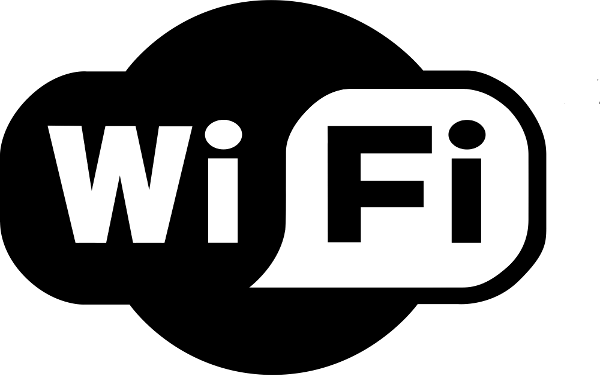In an interaction with the newly elected executive committee of the Supreme Court Bar Association (SCBA), the Chief Justice of India Shri H.L. Dattu has indicated certain important measures being taken by the Supreme Court to make it e-friendly. Some of these proposals include making the entire campus of the Supreme Court as a Wi-Fi zone and discontinuing the printed daily cause-lists and circulating only the electronic cause-lists by email or on the website of the Supreme Court.

As per an update posted on the Facebook page of the SCBA, the Chief Justice of India has informed that with effect from 1st February 2015, the printed cause-lists will be discontinued and only electronic cause-lists will be issued. For those who are not aware of the terminology, “cause-list” means the list of all cases that are to be listed on a given day for hearing before various courts in the Supreme Court. It is noteworthy that the Supreme Court issues several types of cause-lists, such as:
- Advance Lists
- Weekly Lists
- Daily Cause Lists
- Supplementary Cause Lists.
- Registrar Courts’ Cause Lists
- Advance Chamber Lists
- Chamber Lists
- Elimination List – Court
- Elimination List – Registrar
- Terminal Lists
- Review Petition List
It is pertinent to mention that a daily cause list may easily run into 100 pages or more. For example, the daily cause list alone for the coming Monday (12 January 2015) runs into 98 pages. Other cause lists, as mentioned above, may similarly contain a large number of pages. At present, there are a total of 339 subscribers to the printed cause lists. So, you can very well imagine as to how many pages are required to be printed for publishing all these cause lists for 200 days of the year (for which the court operates in a year) for these 339 subscribers and for some in-house requirements. In this regard, SCBA has agreed to help those members of the Bar who are not comfortable with computers by keeping printed copies of the cause lists in the SCBA libraries and ladies bar room.
In fact, the Chief Justice informed that about ₹ 1 crore would be saved every year by discontinuing the printed cause lists. Moreover, a large number of trees would be saved every year, thereby helping the environment. In addition, 3 large rooms (next to the SCBA Plaza canteen) that are used for storing paper for printing these cause lists will also become available now for other purposes. Interestingly, the Chief Justice Shri H.L. Dattu has informed the SCBA that these rooms would be converted into a crèche for the benefit of the lady members of the Bar. He also informed that the amount of ₹ 1 crore that would be saved would also be spent on developing the crèche.
Wi-Fi zone: Another important development is the information given by the Chief Justice of India relating to making the entire campus of the Supreme Court (including the area in which lawyers’ chambers are located) as a Wi-Fi zone. However, it is not clear whether this Wi-Fi zone will be free to use or on subscription basis.
SCBA’s request for signal boosters and e-kiosks at convenient places in the Supreme Court premises, so that lawyers can have convenient access to Supreme court website, cause lists, case status etc. was also considered favourably by the Chief Justice of India.
The Chief Justice also favourably viewed the request of making court rooms more e-friendly and making SC registry also more effective and efficient by best use of better technology.
In this regard, it may be pointed out that, at present, it is very rare to find an advocate (or a judge) referring to a judgment or a law on his laptop or tablet or smartphone. While some lawyers do take their smartphones / tablets and small laptops inside the court rooms, so far the practice has been to refer to the printed copies of the books / judgments while addressing the court. In fact, it is not clear whether one is officially permitted to take the laptop inside the court rooms, though usually the security staff does not object if one carries tablets or small laptops (though some of them insist that permission of the court masters should be taken for larger laptops). There is a need for more clarity on these issues. Lawyers should be permitted or rather encouraged to use their laptops, tablets and smartphones inside the court rooms to refer to the judgments, laws, e-copies of the petitions, etc., while addressing the court; this would be quite convenient instead of carrying a large number of books / journals inside the court. It may also help in the cause of the environment, since some lawyers who print copies of judgments to refer inside court rooms, would not have to do so.
Certain other measures being taken by the Supreme Court include using the open spaces (presently used as cycle stands) in the R.K. Garg and A.K. Sen lawyers’ chamber blocks as canteens for the SCBA members and a reception room near the dispensary that can accommodate 100 visitors. On being asked by the Chief Justice of India, the UCO Bank (located within SC premises) has agreed to provide loans up to ₹ 2 lakh to up to 500 advocates for building their personal libraries with books and law software such as SCC software.
It is good to see such useful measures being taken by the CJI Justice H.L. Dattu, who appears to be quite receptive to most of the requests made by the Bar.

